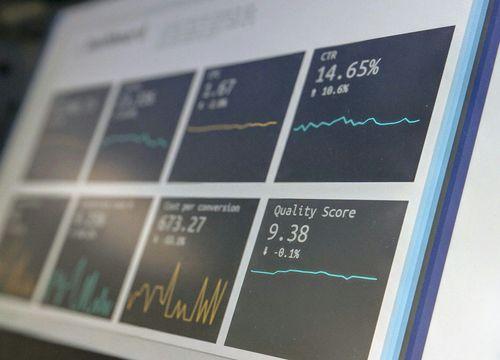
Digital Marketing Trends & Costs in 2025
As we edge closer to 2025, the digital marketing landscape is evolving faster than ever. From AI integration and hyper-personalisation to an evolving search ecosystem and rising advertising costs, businesses are facing new challenges—and opportunities. In this blog post, we’ll explore the most impactful digital marketing trends and their cost implications, discuss how AI is transforming strategies, and offer insights on managing your digital marketing budget effectively.
Published on
Apr 9th, 2025
Updated on
Apr 9th, 2025
Tags
FAQ
What are the key digital marketing trends for 2025?
The most impactful trends include AI integration and automation, hyper-personalisation, an evolving search landscape (with a focus on voice and visual search), short-form video content, social commerce, sustainability and ethical marketing, interactive content and gamification, and a strong emphasis on data privacy and transparency.
How is AI transforming digital marketing strategies in 2025?
AI is revolutionising digital marketing by automating routine tasks, providing advanced analytics and predictive insights, and enabling hyper-personalisation across campaigns. This leads to more efficient ad placements, tailored content creation, and real-time campaign adjustments.
What factors are driving rising digital marketing costs in 2025?
Several factors contribute to increased costs, including investments in AI and automation, the need for sophisticated targeting and personalisation tools, rising competition in digital advertising leading to higher cost-per-click (CPC), and the requirement to adapt to new search technologies and platforms.
What is the typical cost range for various digital marketing services in 2025?
The cost ranges vary by service:
SEO: £1,500 - £5,000 per month
PPC Advertising: £1,000 - £10,000 per month
Social Media Marketing: £1,000 - £20,000 per month
Content Marketing: £2,000 - £10,000 per month
Email Marketing: £300 - £5,000 per month
These figures are indicative and can fluctuate based on business size, market competition, and campaign complexity.
How can businesses manage digital marketing costs effectively?
Effective strategies include optimising existing campaigns, investing strategically in AI and automation tools, balancing the marketing mix based on performance data, reviewing budgets regularly, and using a hybrid approach that combines in-house efforts with specialised agency support.
What should I consider when hiring a digital marketing agency in 2025?
When selecting an agency, consider their expertise in current trends (like AI and personalised marketing), transparency in reporting, proven track record with case studies and client testimonials, and their ability to tailor strategies to your unique business needs.
How does personalisation impact digital marketing costs?
Personalisation requires significant investment in advanced analytics and targeting tools, which can drive up costs. However, the enhanced user experience and improved conversion rates often result in a better return on investment (ROI), making the initial expense worthwhile.
Which emerging platforms are influencing digital marketing costs in 2025?
Emerging platforms such as TikTok, Instagram Reels, and niche channels like Reddit PPC ads are reshaping the digital landscape. While these platforms often require new strategies and upfront investments, they can offer cost-effective reach, particularly among younger audiences.
How do businesses measure ROI in digital marketing campaigns?
ROI is typically measured by comparing the net profit generated from a campaign against the total digital marketing costs, usually expressed as a percentage.
Are there cost-effective digital marketing strategies for small businesses in 2025?
Yes, small businesses can leverage cost-effective strategies such as content marketing, SEO, targeted social media campaigns, and automation tools. These approaches minimise manual efforts while maximising reach and engagement, helping to secure a competitive edge even with limited budgets.



